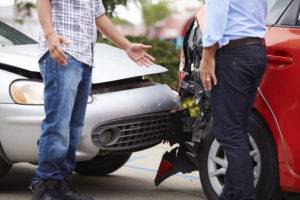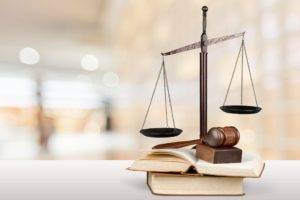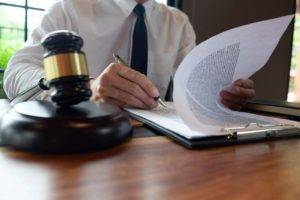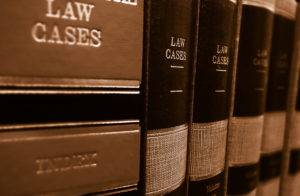In Florida, premises liability laws exist to protect anyone who suffers injuries while visiting a property by requiring property owners to take responsibility for keeping their premises safe.
The law requires property owners to keep the interior and exterior of their premises in reasonably safe condition to prevent accidents and subsequent injuries. If a property owner fails to take such actions and someone is injured, they can be held liable for negligence. This only applies to anyone who is on the property legally and not to trespassers. Visitors, people on the premises for legitimate business purposes and others who suffer injuries can file premises liability lawsuits if they suffer injury while on the property if a dangerous condition exists that should have been addressed.
What is Premises Liability in the State of Florida?
Premises liability in Florida requires certain criteria for a person to have a valid claim to file a personal injury lawsuit. The law entails knowing the duty of care owed to visitors in Florida, the statute of limitations for premises liability cases in Florida, comparative negligence, proving causation, proving damages, proving breach of duty of care and the laws concerning children.
The Duty of Care Owed to Visitors in Florida
In Florida, property owners or managers owe a duty of care to all visitors to their premises. This means that if the owner or manager is aware of a dangerous condition that could lead to an accident resulting in injury, they must take action to correct it or at least warn visitors of the condition. Visitors include anyone who has a legal right to be on the property such as shoppers, patrons, clients, employees, third-party employees, vendors and guests who are invited by someone who has a legal right to do so. The duty of care doesn’t extend to trespassers.
Statute of Limitations for Premises Liability Cases in Florida
The statute of limitations for premises liability cases in Florida is four years. This means that an injured person has four years from the date of their injury to file a lawsuit for damages. However, it’s best to file as soon as injury symptoms begin to manifest.
Comparative Negligence
Florida follows the pure comparative negligence system for injury cases. This means that the plaintiff’s percentage of fault for the accident leading to their injury is reduced by the total amount of damages they seek in their claim. In other words, if you suffered injuries while visiting a property with a dangerous condition while momentarily distracted, you might be found 20% responsible for the accident; this would mean if you were suing for $10,000, you would recover $8,000 if you win your lawsuit.
Proving Causation
Causation relates to the situation or condition that caused someone to suffer injuries in an accident while visiting a property. This must be proven in premises liability lawsuits to have a successful case. Specifically, the plaintiff must prove that a dangerous condition on the premises directly caused their accident and injuries and that the accident and injuries would not have happened if not for that dangerous condition.
Proving Damages
A person seeking damages through a premises liability lawsuit must prove that they have suffered damages. This means they cannot have just had an accident on a property; they must effectively show that they suffered real damages as a direct result of their injuries. This can be done by presenting evidence like medical bills and medical expenses, lost wages and lost earning capacity and other losses they have experienced due to the injury.
Proving Breach of Duty of Care
A person injured in a premises liability situation has to prove breach of duty of care after filing a lawsuit. To do this, they must show that the property owner or manager failed to behave in the same manner that any reasonable person in the same position would have acted. The basis of breach of duty of care is usually negligence.
Laws Concerning Children
Premises liability law concerning children has a special clause: even if a child trespasses onto a property, the property owner or manager can still be held liable if the child suffers an accident and gets injured or even killed. This is known as “attractive nuisance.” It refers to facets of a property containing details or features that attract children.
Need free legal help in Florida?
We specialize in personal injury claims.

Different Types of Visitors Under Premises Liability Laws in Florida
Under Florida’s premises liability laws, there are different types of visitors. They include invitees, licensees and trespassers.
Invitees
An invitee is a person who goes onto a property after having been invited by the owner. An example of an invitee is a customer or patron of a store or restaurant. This person can also be a friend of the owner who was invited over for a visit.
Trespassers
Trespassers are people who do not have a legal right to be on a property. As a result, if someone trespasses onto a property and suffers injuries as a result of a dangerous condition, they don’t have the legal right to file a premises liability lawsuit against the owner or manager. However, children who are considered trespassers are exempted from this rule.
Common Types of Premises Liability Cases in Florida
Certain types of premises liability cases are common in Florida. They include slip-and-fall injuries, trip-and-fall accidents, falling objects, fire and burn injuries, retail store accidents, negligent maintenance, elevator and escalator accidents, swimming pool injuries, dog bites and amusement park rides.
Slip-and-Fall Injuries
Slip-and-fall accidents resulting in injuries are among the most common situations involving premises liability cases. If a person has a lawful right to be at a property, slips and falls and subsequently sustains an injury, they can file a claim for damages.
Trip-and-Fall Accidents
Trip-and-fall accidents also occur frequently on property. These incidents can lead to injuries that can render the victim unable to work for some time.
Falling Objects
Injuries sustained from falling objects usually happen to employees. However, in premises liability law, employees and other people who have a legal right to be on a property can become victims of falling objects. These accidents often result in severe injuries.
Fire and Burn Injuries
Fire and burn injuries happen when someone legally allowed to be on a property and a fire hazard exists, causing a blaze. A fire can occur for different reasons; combustible materials left near a heat source, a stove accidentally left on while unused or old, faulty wires exposed leading to an electrical fire. These are a few examples of how fire and burn injuries can happen that warrant filing a premises liability lawsuit.
Retail Store Accidents
Retail stores must keep common walking areas free of clutter and dangerous conditions; otherwise, a customer or employee can have an accident that leaves them injured. In that situation, the store owner or manager could be held liable.
Negligent Maintenance
Negligent maintenance relates to dangerous conditions on a property that can lead to an accident and injuries to those present. For example, a broken step in a stairwell in a hotel can lead to a person tumbling and breaking their leg. Property owners must keep their premises in good condition to avoid such disasters from happening.
Elevator and Escalator Accidents
Many office buildings and stores have elevators and/or escalators to allow patrons and customers, respectively, to go from one floor to another. Unfortunately, accidents sometimes occur with these structures that can cause serious and even catastrophic injuries. Victims can file premises liability lawsuits if they become injured as a result of elevator or escalator accidents.
Swimming Pool Injuries
Property owners and managers must ensure that their pools are in good condition and meet safety regulations to prevent swimming pool injuries. Lifeguards must be present to keep watch over visitors and rescue anyone who needs assistance while in the water. The area around the pool must be clean and safe to prevent accidents and injuries. Unfortunately, it’s common for poolside areas to be wet and slippery, which can lead to accidents.
Dog Bites
According to Florida Statute 767.04, dog owners are liable if their pet bites a person on a property when they have a legal right to be there. Florida follows the strict liability rule for dog bites, which means the owner is automatically liable for any injuries their dog causes another person. It doesn’t matter if the dog never previously bit or attacked anyone.
Amusement Park Rides
Many people enjoy visiting amusement parks during nice weather. However, it’s all too common for accidents to happen while on amusement park rides. Many of those situations end up with people suffering injuries. The owner or manager of an amusement park can be held liable if the ride is found to be hazardous and if there is a known problem they failed to repair.
Common Causes for Premises Liability Claims in Florida
There are certain causes for premises liability claims in Florida that are very common. They include dangerous conditions on the property or premises, swimming pool and other potential hazards on a property and inadequate security measures.
Dangerous Conditions on the Property or Premises
Dangerous conditions on the property or premises can take many forms. It might involve a slippery or sticky floor, clutter in walkways and stairways, tattered or ill-fitting carpeting or rugs, extension cords in walking areas, poor lighting, broken structures and fire hazards, to name a few. Any dangerous condition must be addressed by the property owner or manager or cordoned off until it can be fixed to avoid accidents and injuries.
Swimming Pools and Other Potential Hazards on a Property
Swimming pools must be secure and the area around them kept clean to prevent a potential accident and injuries. Owners and managers are required to keep the pool area fenced so that children who could wander onto the property don’t fall prey to an attractive nuisance. Other potential hazards should also be secured to prevent a tragedy from happening. If the property owner or manager fails to keep dangerous conditions at bay and does nothing to fix them, they can be held liable if anyone is injured.
Inadequate Security Measures
If an intruder enters a public property and causes harm to a visitor or other person who has a legal right to be there due to a lack of adequate security measures, the owner can be held liable. Property owners and managers are obligated to ensure their premises are safe to prevent disasters that result in damages; this includes keeping the property safe from intruders who could hurt those who have a lawful reason to be present. Failing to do this is considered negligence.
Who Is Liable for Injuries on Someone Else’s Property in Florida?
Two different parties may be held liable for injuries on someone else’s property in Florida. They are property owners or business owners.
Property Owners or Business Owners?
Property owners or business owners can be liable for injuries on someone’s property in Florida. The owner of the property is liable when their actions or lack thereof to keep all areas free of dangerous conditions directly lead to an accident and injuries. However, a business owner may be held liable if a known dangerous condition exists in or outside their establishment and they fail to eliminate it or repair it.
Need free legal help in Florida?
We specialize in personal injury claims.

What Are the Legal Duties Owed to Visitors in Florida?
In Florida, property owners and managers owe legal duties to visitors to their property or premises. This is known as a duty of reasonable care.
Duty of Reasonable Care
The duty of reasonable care is the duty owed to visitors by property owners and managers to ensure their safety while visiting the property. Visitors include invitees, licensees, customers, suppliers, vendors, employees and other people who are legally allowed to be on the premises.
What Happens if Property Owners Fail to Fulfill Their Legal Duties in Florida?
If a property owner in Florida fails to fulfill their legal duties in keeping their property safe, they can be held liable. If someone suffers injuries as a result of the property owner’s failure to keep their premises safe, that person can file a premises liability lawsuit against the owner.
Evidence Required to Prove Premises Liability in Florida
Certain evidence is required to prove premises liability in Florida. They include photographs and videos, official accident reports, supporting witness statements, official medical records and any past incidents or complaints.
Photographs and Videos
Photos and videos are integral evidence for a premises liability case. They can show the dangerous conditions on the property and how the accident occurred. In the case of video evidence, it can show the events leading up to the victim’s injuries in real-time.
Official Accident Reports
Official accident reports are records taken at establishments where accidents occur. In some cases, they may include police reports; for example, dog bite cases often involve the police. Accident reports can serve as valuable evidence in premises liability cases.
Supporting Witness Statements
If anyone is present at the time of a premises liability situation resulting in an accident and injuries, getting their statements is crucial. Witness statements can make or break a case; typically, witnesses are impartial parties, so their recollection of an accident can significantly strengthen a premises liability case.
Official Medical Records
If you suffered injuries due to a dangerous condition on a property or premises or through some other type of premises liability situation, having medical records is essential. They are among the strongest pieces of evidence you can have in your case. Official medical records detail the nature of your injury, its severity and whether it might impact your future.
Any Past Incidents or Complaints
Known past incidents or complaints about dangerous conditions on the property are other vital pieces of evidence for a premises liability claim. If other people suffered injuries in the past, it backs up that such dangerous conditions exist and should have been fixed by the property owner or manager to avoid future incidents.
Frequently Asked Questions
What Is the Duty to Maintain Premises in Florida?
The duty to maintain premises in Florida refers to the owner or manager’s responsibility to keep their property reasonably safe and hazard-free to prevent accidents that could result in injury.
What Is the Law 768.0755 in Florida?
According to the Florida Senate, law 768.0755 states that if a person slips and falls on a transitory foreign substance while visiting a place of business, the injured party must prove that the owner or manager had knowledge of the dangerous condition and should have taken appropriate steps to correct it.
What Is the Statute of Limitations on Premises Liability in Florida?
Premises liability cases are a subsection of personal injury claims. The statute of limitations for such cases is four years from the date of injury.
What Is the Duty to Warn in Florida Premises Liability?
By law, property owners in Florida are required to warn any visitors to their premises of dangerous or potentially dangerous conditions that are known but “hidden” to visitors.
What Is the 25 rule in Florida Building Code?
The 25 rule in Florida building code means that a roof must be replaced if over 25% of it is damaged or in disrepair. The rule applies to commercial and residential properties.
What Is the 721 Law in Florida?
The 721 law in Florida relates to timeshares. Formally, it’s known as the Florida Vacation Plan and Timesharing Act.
What Is the 83.52 Law in Florida?
According to the Official Internet Site of the Florida Legislature, the 83.52 law means that tenants are obligated to maintain their dwelling units during their tenancy.
What Is the 723.061 Law in Florida?
Florida’s 723.061 law refers to a mobile home park owner’s right to evict tenants based on certain grounds; these include nonpayment of rent, violations, state or federal law convictions and more.
Who Is Responsible for Right of Way Maintenance in Florida?
In Florida, premises liability law states that property owners are responsible for right-of-way maintenance.
What Is the State Active Duty in Florida?
In Florida, state active duty refers to military service personnel on full-time duty when ordered by the governor or adjutant general.
What Are the Responsibilities of the Building Official in Florida?
The responsibilities of the building official in Florida include administration, supervision, enforcement, direction and other duties related to ensuring that buildings comply with all laws so they are safe and up to code.
Does Florida Have a Duty to Act Law?
Florida law does not require a duty to act unless the person caused an accident or harm to someone else.
Is Florida a Strict Liability State?
Florida is a strict liability state for dog bites.
Is Florida a No-Liability State?
Florida is a no-fault state when it comes to motor vehicle accidents, but the no-liability rule doesn’t apply to premises liability.
What Is the Maximum Limit of Liability That Is Available Under Florida Law?
The maximum limit of liability available under Florida law is $200,000 per claim per person and $300,000 per incident.
What Is Failure to Warn in Florida?
In Florida, failure to warn means that a manufacturer failed to inform the public of potential risks of using its products.
What Is Negligence Duty in Florida?
Negligence duty in Florida means the four elements of negligence: duty of care, breach of duty, causation and damages apply in a premises liability case or other cases involving personal injury.
Need free legal help in Florida?
We specialize in personal injury claims.






